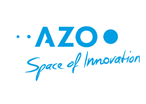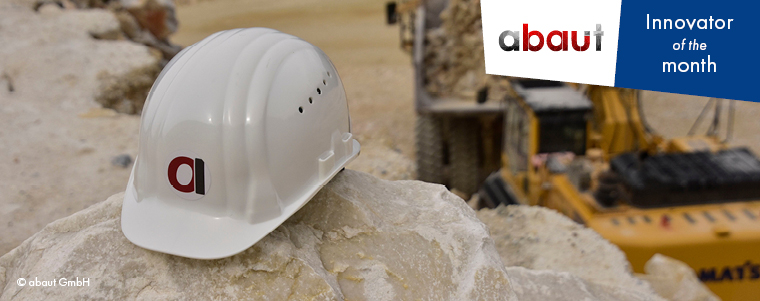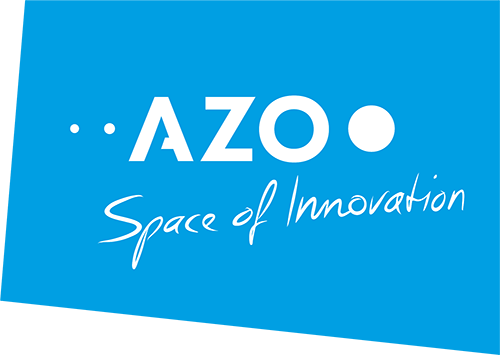While the construction industry represents one of the major sectors in Germany, it is commonly regarded as more conservative than others. Digitalisation is increasingly making its presence felt as industrial automation can vastly increase efficiency and transparency in construction areas.
One driver of this trend towards digitalisation in the construction and mining industry is the ESA BIC Bavaria Alumnus abaut. The company is automating and optimising construction processes using its smart camera and IoT sensor technology, combined with machine-learning algorithms. This allows abaut to track and control machine fleets and overall processes in construction areas. Engineers and planners maintain a continuous overview of the construction area with a GDPR-compliant live stream and are provided with a real-time performance evaluation of ongoing processes on site. abaut’s technology is able to control and analyse various applications, for example, loading operations and filling levels of rubble containers, and evaluate productive and unproductive times or the stage of completion.
In doing so, abaut’s technology makes it possible to react immediately to difficulties on-site, thus preventing machines and processes from standing still and ultimately saving costs and reducing the duration of construction projects.
abaut was initiated by a team of five in 2017 and has since grown to a team of 23. The company was incubated at ESA BIC Bavaria from 2019 to 2020 and is now part of the diverse ESA BIC Bavaria Alumni network.
Pia Feurstein, ESA BIC Bavaria Project Manager at AZO, interviews Sebastian Kaluza, CEO of abaut.
PF: Please give us a sneak peek of your product and the team behind it.
SK: We produce unique knowledge for construction and mining, and therefore deliver our own hardware and software built in our hometown of Munich. To realise our vision of a control centre for operational managers, we have a great team consisting of passionate experts from the construction and mining industry, who contribute their in-depth knowledge to solve our customers’ problems, as well as an even greater team of developers, who convert the ideas into products.
For example, we asked ourselves how we can analyse and improve the workflows on site and thought about the data we needed. As we worked as project managers in our areas, we were always afraid of making mistakes since every mistake could be quite expensive. But a project manager cannot observe everything that is happening on his site and, therefore, misjudgements are normal. So, we think about the data project managers need to make the best decisions for their project and then tell our developers what we believe. Then it’s their job to arrange the sensors we need to produce the data as well as develop and train the algorithms so we can deliver consistent and correct data such as idle times, preparation times, driving times for heavy machines or, combined with our cameras, data about what is happening from the perspective of the machine itself.
PF: What has been your company’s biggest challenge so far?
SK: When we thought about the product we would like to have, we quickly realised that developing software is not enough. Instead, we needed our own hardware. We did not want to interfere with the on-board electronics of the machines because this would void the warranty. We needed to combine a large number of sensors in a box that is small enough to not get in the way in the driver’s cabin. And developing hardware is crazy – there is so much to watch out for! But we are proud that we made it and are now already developing the second version of our boxes.
PF: Can you explain the three main ingredients of your recipe for success?
SK: I think the main ingredient is a passion for what you do. If you really love your topic and believe in your idea, you can overcome the challenges that will occur and cope with the setbacks. Then, you need to find a team of experts that believes in you and your idea. And the third one is finding the partners and customers who give you the possibility to grow. This may be the hardest part. Especially in the field of artificial intelligence, you need a lot of data to train your algorithms and you normally need trained algorithms to gain customers. we were lucky that we found these partners, mentors and customers who supported us and gave us the chance to train our products on their sites.
PF: Did the Covid-19 outbreak have any effects on your business and/or are you expecting any impacts in the future?
SK: Luckily not yet. The Covid-19 outbreak has turned out to be one of the drivers of digitalisation in the last few months and we are happy to work for a sector that is countercyclical. Our customers are now making the most of the chance to improve their processes with our products and therefore save costs. Saving costs is certainly always a good idea, but particularly in times when you have less income. We have also improved our processes. Instead of meeting our customers in person and installing our sensors and cameras on their sites, we meet them online and afterwards send our boxes by post – it turns out that they are so easy that the installation is no problem for our customers and can be trained in under 10 minutes per machine.
PF: What did you expect from ESA BIC Bavaria? How did the initiative and its network help you to kick-start your business case?
SK: The ESA BIC Bavaria supported us with expert coaching for different questions that we faced when building up our company, which was very helpful in some cases. We also benefit from the great network. As an example, we got a recommendation from our network and this resulted in a grant we received from the ESA Kickstart programme, which belongs to ESA United Kingdom.
The community is also very cool and helped us a lot. We got a lot of feedback on our ideas so we could sharpen them again and again until they were not just good but brilliant.
PF: How did the DLR support you?
SK: In the case of DLR, we benefit most from the network and the community there, which helped us to become better-known and also helped us to stay state-of-the-art in important and rapidly developing topics like smart data, which is definitely quite important for us.
PF: Let’s reach for the stars – what is going to happen in abaut’s future?
SK: Great things, of course! We are focusing strongly on building a high-impact product for our customers in the construction and mining industry and therefore developing our products constantly. The best example is our latest product, called “datalogger”. Our products take pictures and so we have always made sure that we are GDPR-compliant. But now, with the datalogger, we ensure that personal encryption will be done directly on edge instead of doing this in the cloud, making our products safer than ever. And we are digging for new data all the time to become the best and most innovative data provider for all of the companies in our sector!
Did you enjoy this interview with abaut? Stay tuned for upcoming interviews with more ESA BIC Bavaria innovators on our AZO Blog.





Comments are closed.